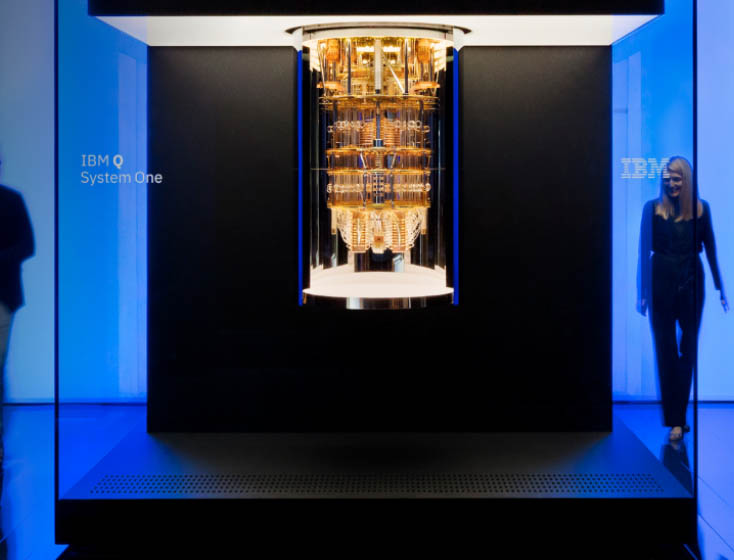IBM Boasts 100 Clients for Its Quantum Computing Service
Although a symbolic milestone, it proves that quantum computing is here to stay.

IBM announced that its quantum-computing service now has 100 clients, including businesses, academic institutions, and government research facilities.
IBM started giving access to its experimental quantum computers back in 2017, through the IBM Q Network service. By January 2019, the company had gained 40 clients on its Q Network that had access to its 15 experimental quantum computers, as well as to developer tools and expertise from IBM’s quantum computing staff.
Even though its quantum computers weren't quite ready for prime time, IBM bet (quite a long time ago actually) that quantum computers were going to be the future. By allowing developers and companies to learn how to create quantum algorithms early on, it could later benefit by already having an ecosystem of tools and applications ready and developed for its own quantum computers. These tools would then be ready to use when quantum computers become powerful enough to be practical.
Dario Gil, director of IBM Research, claimed that value is already being created today with its quantum computers, as the Q Network clients learn how to use quantum algorithms for their specific business or research needs.
Matthew Brisse, an analyst at research and advisory firm Gartner Inc. believes that the number of clients IBM has been able to acquire for its Q Network computing service suggests that quantum computing is now starting to be seen as a competitive differentiator. Gartner predicts that by 2023 one fifth of organizations and governments will budget for quantum computing, compared to less than 1% back in 2018.
Microsoft and Amazon have also recently started offering similar cloud services recently, and Google has also claimed to have achieved “quantum supremacy,” something that was disputed by IBM.
Daimler, the parent company of Mercedes-Benz, who has worked with both Google’s and IBM’s quantum computers, has stated that the systems could prove useful to accelerate battery chemistry research.
Get Tom's Hardware's best news and in-depth reviews, straight to your inbox.
The company claimed that it hasn't been possible to do battery chemistry simulations in software, so the researchers have to keep building prototypes until they notice significant improvements in various battery technologies.
However, Daimler has developed quantum algorithms that could model the energy between certain molecules. Once quantum computers are powerful enough, Daimler researchers believe that an entire battery’s chemistry could be simulated on them.
Daimler has used its access to IBM’s Q Network to learn that batteries using lithium and sulphur could prove practical for the mass market, as they promise to be both more affordable and have a higher energy density than the lithium-ion equivalents.
Volkswagen, has also experimented with quantum computing both with its battery research and self-driving projects. The company has worked with Google and D-Wave to create traffic guidance systems that can avoid busy routes, find electric car chargers, and even identify vacant parking spots.
Now that Google has shown that it is possible for a quantum computer to perform at least some tasks faster than the world’s most powerful supercomputers, this should only give other companies more confidence that quantum computers are not only here to stay, but that they will continue to evolve, and those who adopt them early may reap big rewards in the end.
Lucian Armasu is a Contributing Writer for Tom's Hardware US. He covers software news and the issues surrounding privacy and security.